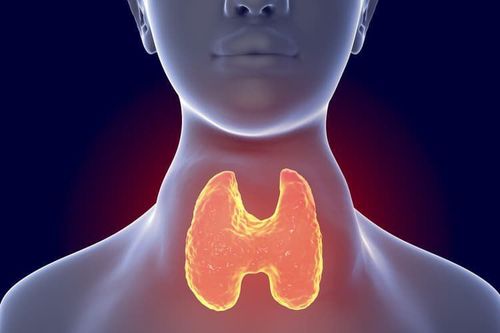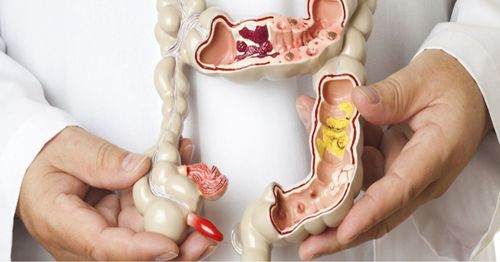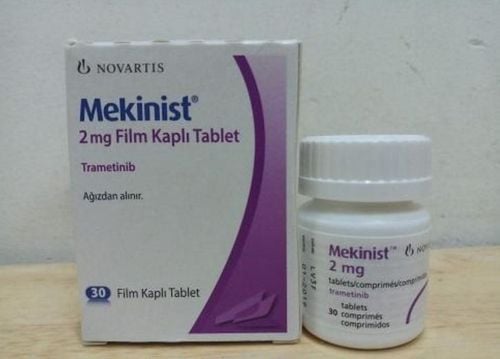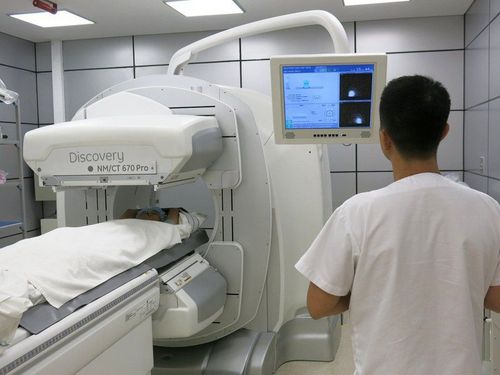This is an automatically translated article.
The article was written by Specialist Doctor I Nguyen Thi Minh Thuyen - Pathologist, Pathology Department - Vinmec Danang International General Hospital.
If you have been diagnosed with thyroid cancer, your oncologists will discuss treatment options with you. It is important to weigh the benefits of each option and limit the risks and possible side effects.
Treatments for thyroid cancer may include:
Surgery Radioactive iodine (Radioiodine) therapy Hormone therapy External beam radiation therapy Chemotherapy Targeted therapy Most thyroid cancers Thyroid can be cured, especially if they have not spread to distant organs of the body. If the cancer cannot be cured, the goal of treatment is to remove or kill as many cancer cells as possible and keep the cancer from growing, spreading, or returning for as long as possible. Sometimes treatment is aimed at relieving symptoms such as pain or breathing problems.
When choosing a treatment plan, factors should be considered including the histological type and stage of the cancer as well as your general health. Usually, more than one of the treatments listed above is needed.
A. SURGERY
Surgery is the mainstay of treatment in most cases of thyroid cancer, with the exception of some undifferentiated thyroid cancers.
1. Lobectomy
Lobectomy is the removal of the lobe of the thyroid containing the cancer, often accompanied by a isthmusectomy (the tissue that connects the left and right lobes).
Usually used in some cases:
For the treatment of differentiated thyroid cancer (papillary or follicular) when the lesion is small and there are no signs of spreading beyond the thyroid gland. To diagnose thyroid cancer if fine-needle aspiration (FNA) results are not definitive. Advantages: Patients may not need to take thyroid hormone medication because some thyroid tissue is left after surgery. Cons: Remaining thyroid tissue may be affected by some tests to evaluate for cancer recurrence (eg, scintigraphy, thyroglobulinemia)

2. Thyroidectomy (thyroidectomy)
Is the most commonly used surgery for thyroid cancer.
If the entire thyroid gland is removed, it is called a total thyroidectomy. Sometimes it is not possible to remove the entire thyroid gland, called a near-total thyroidectomy. : Need to take thyroid hormone medicine (levothyroxine) daily. Advantages: Can evaluate for cancer recurrence by tests (eg, scintigraphy, thyroglobulin blood).
3. Lymph node dissection
If the cancer has spread to the lymph nodes in the neck, they will be removed at the same time as the thyroidectomy.
For the treatment of medullary thyroid cancer and undifferentiated cancer: Particularly important when choosing surgical treatment For papillary or follicular cancer in which only 1 or 2 large lymph nodes contain If cancer is present, the lymph nodes can be removed and any remaining small nodes that contain cancer cells can be treated with radioactive iodine after surgery.
4. Risks and Side Effects of Thyroid Surgery
Patients with thyroid surgery can be discharged soon after surgery. Potential complications of thyroid surgery include:
Temporary or permanent hoarseness or loss of voice, due to irritation of the larynx by the breathing tube during surgery, or if the laryngeal nerves (or vocal cords) negative) was damaged during surgery. Therefore, the doctor should check the vocal cords before surgery to see if they are working properly. Damage to the parathyroid glands (small glands behind the thyroid gland that help regulate calcium levels). This can lower blood calcium levels, causing muscle spasms, numbness, and tingling. Excessive bleeding or formation of a large blood clot in the neck (hematoma) Infection

B. Radioactive IODINE TREATMENT (RADIOIODINE-RAI)
The thyroid gland absorbs almost all the iodine in the body. Therefore, radioactive iodine (RAI, or I-131) can be used to treat thyroid cancer. Radioactive iodine targets thyroid cells mainly, where radiation can destroy the thyroid gland and any other thyroid cells that absorb iodine (including cancer cells), with little effect on the muscles. the rest of the body. The therapeutic dose of I-131 is much stronger than the dose used in thyroid scans.
I-131 can destroy any thyroid tissue that is not removed with surgery or to treat certain types of thyroid cancer that have spread to the lymph nodes and other parts of the body.
Radioactive iodine therapy helps patients live longer if they have papillary or follicular thyroid cancer (differentiated thyroid cancer) that has spread to the neck or other parts of the body, and is considered standard practice. But the benefits of I-131 are less obvious for small thyroid cancers that don't seem to have spread, because these cancers can be completely removed with surgery.
Radioactive iodine therapy is not used to treat anaplastic, undifferentiated and medullary cancers because these cancers do not absorb iodine.
1. Prepare
For radioactive iodine therapy to be most effective, you must have high levels of thyroid-stimulating hormone (TSH or thyrotropin) in your blood. This hormone helps thyroid tissue (and cancer cells) absorb radioactive iodine. If the thyroid gland has been removed, there are several ways to increase TSH levels before being treated with I-131:
Stop taking thyroid hormone medication for a few weeks, causing low thyroid hormone levels (hypothyroidism), causes the pituitary gland to secrete more TSH. This intentional hypothyroidism is temporary, but it often causes symptoms such as fatigue, depression, weight gain, constipation, muscle pain, and decreased concentration. Inject thyrotropin (Thyrogen), which causes thyroid hormone to be withheld for a long time. It is taken daily for 2 days, then I-131 is given on day 3. Most doctors also recommend following a low-iodine diet for 1 or 2 weeks before treatment, which means avoiding the foods containing iodized salt, as well as egg, seafood, and soy products.
2. Risks and side effects
Your body will release radiation after some time you have I-131 treatment. Depending on the dose of I-131 used and where it was treated, you may need to stay in the hospital for a few days after your treatment, in a special isolation room to prevent other people from being exposed to radiation.
Short-term side effects of I-131 treatment may include:
Neck pain and swelling Nausea and vomiting Painful swelling of the salivary glands: Chewing gum or sucking on hard candy can improve Dry mouth Taste changes Sensation Dry eyes Men: May have a lower sperm count, or, rarely, infertility (when using large total doses of radioactive iodine) Women: May also affect the ovaries, and may have periods Irregular menstrual periods within one year of treatment. Many doctors recommend that women avoid becoming pregnant for 6 months to a year after treatment. No adverse effects were noted in children born to parents who had received radioactive iodine treatment in the past.

Talk to your health care team if you have any questions about the risks and benefits of I-131 treatment.
Vinmec Hospital is an international standard hospital in terms of service and quality with JCI certification to ensure maximum patient safety. The hospital has a full range of facilities for diagnosis and surgical treatment of thyroid cancer diseases, with a team of dedicated medical staff, oncologists specializing in head, neck and thyroid surgery for many years. experience.
For common cases of thyroid cancer surgery, the patient only needs to stay in the hospital for one night, the patient quickly recovers to be able to be discharged home safely.
If you have a need for consultation and examination at Vinmec Hospitals of the national health system, please book an appointment on the website (vinmec.com) for service.
Please dial HOTLINE for more information or register for an appointment HERE. Download MyVinmec app to make appointments faster and to manage your bookings easily.
Article referenced source: American Cancer Society













